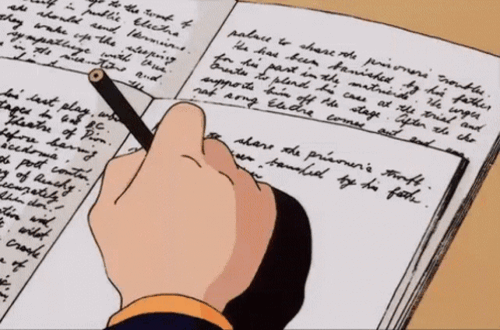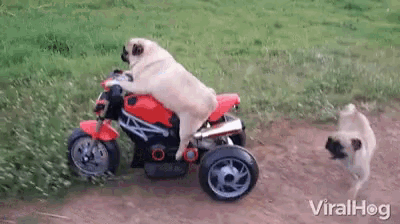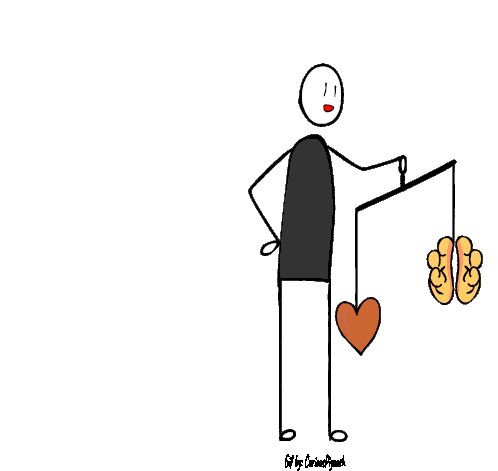
VERSIÓN ESPAÑOL:
¿Cómo va la gente de Blurt?
Les aúllo el chisme por el que seguro vienen a leer a mi cueva de meditación:
Escuchen esta noticia:
Entrando en el tema presentado:
Sid Veijer, un niño neerlandés de tan solo 7 años de edad perdió la vida mientras entrenaba en un karting con su motocicleta. Tras pasar dos semanas en el hospital en estado crítico, dejó a su familia en estado de soledad. Esta tragedia se repite una y otra vez en el deporte, en donde los familiares aseguran que sus destacadas estrellas fallecen haciendo lo que les gustaba, pero, ¿tendría que ser así o solo se trata de un spot publicitario con el que quieren tapar su verdadero dolor ante las cámaras y las redes sociales?
No creo que una respuesta tan liviana refleje el sentimiento de lo que en verdad están sintiendo todavía porque pudieran ahora estar disfrutando de quienes no están y que llegaron para darles amor y alegría en el hogar y no orgullo al deporte nacional de un país, lo cual, me parece secundario, innecesario y trivial.
Hay todo un despliegue de preguntas y cuestionamientos en cuanto a si es lícito o no dejar que los menores de edad participen en deportes extremos, en acciones que les roben la niñez cuando a menor edad menor es la madurez para saber elegir, menor es la capacidad de reflejos en formación, menor es la responsabilidad que un adulto tiene.
En la mayoría de países se otorga el permiso de conducción, se considera a un ser humano responsable de sus actos y elecciones cuando pasa los dieciocho años, por qué permiten que un niño de 7 años conduzca, sea un motor de práctica o no, es un motor, sea una pista de práctica es una pista y ambas cosas conllevan riesgos mortales.

Fuente
¿Acaso esa participación a tan corta edad es solo un sueño impuesto por parte de padres y madres que quieren ver reflejados en sus hijos lo que no pudieron alcanzar?, ¿o si lo alcanzaron, quieren seguir en la sombra de la siguiente generación que tal vez no quiera, no sienta y ni le guste participar en algo que sus padres le han forzado a practicar?
¿Vale la pena el riesgo de exponer a los niños a deportes extremos?
Como padre de tres hijos en formación puedo decirles que no, como padre de tres hijos en formación puedo decirles que los niños y adolescentes necesitan la guía de un adulto responsable, necesitan la protección y la restricción, necesitan gozar de sus edades, de derechos y cumplir con deberes acorde a sus capacidades incluso motrices y cerebrales.
La práctica de deportes de riesgo por parte de menores de edad es un tema que nos enfrenta a dilemas profundos sobre la libertad, la responsabilidad y el papel de los padres en la formación de sus hijos. A primera vista, puede parecer un acto de valentía, de fomentar la pasión y la autodeterminación en los más jóvenes, sin embargo, detrás de cada decisión de este tipo, subyacen preguntas que son incómodas de abordar: ¿quién está tomando realmente la decisión? ¿Qué peso tienen las expectativas y emociones de los padres en estas elecciones? ¿Son basadas en la razón o en la emoción?

Fuente
Es natural que los padres quieran lo mejor para sus hijos, pero a veces, ese "mejor" está teñido por sus propias aspiraciones no cumplidas. Cuando un sueño personal no se realiza, puede transformarse en una sombra que se proyecta sobre la próxima generación. ¿Es esto justo?, mi esposa dice que la línea entre el apoyo y la imposición es delgada, y es fácil cruzarla sin siquiera darse cuenta, y basta con ver casos en donde todos en una familia son abogados, son médicos, son ingenieros y profesionales de la misma carrera, a veces frustrados porque los obligan a estudiar lo que no quieren para que continúen con la tradición familiar, es que ese es un tema que se ha visto hasta en telenovelas o capítulos de la tradicional Rosa de Guadalupe.

Fuente
Un niño que busca la aprobación de sus padres puede abrazar un deporte, un desafío o un estilo de vida, no por deseo propio, sino por responder a una necesidad de reconocimiento o afecto y en los deportes de riesgo, donde el peligro está siempre presente, esta dinámica adquiere un matiz más inquietante. El entusiasmo de los padres puede confundirse con una presión silenciosa, una expectativa no verbalizada pero palpable. ¿Qué pasa si el niño siente miedo, duda o simplemente no comparte esa pasión? ¿Tiene espacio para decirlo, para negarse? O, por el contrario, ¿se siente obligado a cumplir un rol que no eligió completamente?
Los padres no somos los villanos, pero tampoco somos perfectos y es crucial que pensemos sobre sus intenciones y evalúen si están guiando a sus hijos hacia sus propios sueños o hacia los sueños de los hijos mismos. Permitir que un menor practique un deporte de riesgo debería implicar más que la compra de equipo y la asistencia a entrenamientos. Implica diálogo, entendimiento y, sobre todo, escuchar, pero escuchar no solo las palabras, sino también las emociones, los silencios y las miradas que pueden revelar mucho más de lo que se dice en voz alta.
Cada niño merece la oportunidad de explorar sus intereses y enfrentar desafíos que lo apasionen, pero esa libertad debe estar acompañada de un respeto profundo por sus límites y por la realidad de los riesgos que enfrenta. No se trata de limitar la experiencia, sino de asegurarse de que esa experiencia sea genuinamente suya.
Como padre, sé que debo ser guía y no precisamente un escultor, debo estar presente para acompañar y, sobre todo, debo a mí mismo recordarme que el mejor legado que puedo dejar a mis hijos no es un sueño cumplido personal a través sus actos, sino el que ellos puedan tomar sus propias decisiones con valores y bases sólidas.
Ya los leo más tarde.
Chau.
ENGLISH VERSION:
How's it going, Blurt folks?
I am telling you the gossip that you are surely coming to read in my meditation cave:
Sid Veijer, a Dutch boy of only 7 years old, lost his life while training in a karting with his motorcycle. After spending two weeks in the hospital in critical condition, he left his family in a state of loneliness. This tragedy is repeated again and again in sports, where relatives claim that their outstanding stars die doing what they loved, but, should it be like this or is it just a publicity spot with which they want to cover up their true pain in front of the cameras and social networks?
I do not believe that such a light response reflects the feeling of what they are really feeling because they could now be enjoying those who are not here and who came to give them love and joy at home and not pride to the national sport of a country, which, I think is secondary, unnecessary and trivial.
There is a whole array of questions and doubts about whether or not it is legal to allow minors to participate in extreme sports, in actions that rob them of their childhood, when the younger they are, the less mature they are to know how to choose, the lesser is their capacity for developing reflexes, the less responsibility an adult has.
In most countries a driving licence is issued, a human being is held responsible for his or her actions and choices when he or she reaches the age of eighteen, why would they allow a 7 year old to drive, whether it is a practice motor or not, it is a motor, whether it is a practice track it is a track and both carry deadly risks.

Source
Is participation at such a young age just a dream imposed by parents who want to see reflected in their children what they were unable to achieve? Or if they did achieve it, do they want to remain in the shadow of the next generation who may not want, feel or even like participating in something that their parents have forced them to practice?
Is it worth the risk of exposing children to extreme sports?
As a father of three children in training, I can tell you no. As a father of three children in training, I can tell you that children and adolescents need the guidance of a responsible adult, they need protection and restriction, they need to enjoy their ages, their rights and fulfill duties according to their abilities, including motor and brain abilities.
The practice of risky sports by minors is an issue that confronts us with profound dilemmas about freedom, responsibility and the role of parents in the education of their children. At first glance, it may seem like an act of courage, fostering passion and self-determination in the young, but behind every decision of this kind, there are questions that are uncomfortable to address: who is really making the decision? How much weight do parents' expectations and emotions have in these choices? Are they based on reason or emotion?

Source
It is natural for parents to want the best for their children, but sometimes that "best" is colored by their own unfulfilled aspirations. When a personal dream is not realized, it can become a shadow cast over the next generation. Is this fair? My wife says that the line between support and imposition is thin, and it is easy to cross it without even realizing it, and it is enough to see cases where everyone in a family is a lawyer, a doctor, an engineer, and a professional in the same field, sometimes frustrated because they are forced to study what they do not want to continue with the family tradition, this is a topic that has even been seen in soap operas or episodes of the traditional Rosa de Guadalupe.

Source
A child seeking parental approval may embrace a sport, a challenge, or a lifestyle not out of desire but out of a need for recognition or affection, and in risky sports, where danger is ever present, this dynamic takes on a more disturbing tone. Parental enthusiasm can be mistaken for silent pressure, an unspoken but palpable expectation. What if the child feels fear, doubt, or simply does not share that passion? Does he have room to say so, to refuse? Or, on the contrary, does he feel obliged to fulfill a role that he did not fully choose?
Parents are not the villains, but we are not perfect either, and it is crucial that we think about their intentions and evaluate whether they are guiding their children toward their own dreams or toward the dreams of the children themselves. Allowing a minor to practice a risky sport should involve more than purchasing equipment and attending training. It involves dialogue, understanding and, above all, listening, but listening not only to words, but also to emotions, silences and glances that can reveal much more than what is said out loud.
Every child deserves the opportunity to explore their interests and face challenges that excite them, but that freedom must be accompanied by a deep respect for their limits and for the reality of the risks they face. It is not about limiting the experience, but about making sure that this experience is genuinely theirs.
As a father, I know that I must be a guide and not precisely a sculptor, I must be present to accompany and, above all, I must remind myself that the best legacy I can leave my children is not a personal dream fulfilled through their actions, but that they can make their own decisions with values and solid foundations.
I'll read them later.
Bye.
